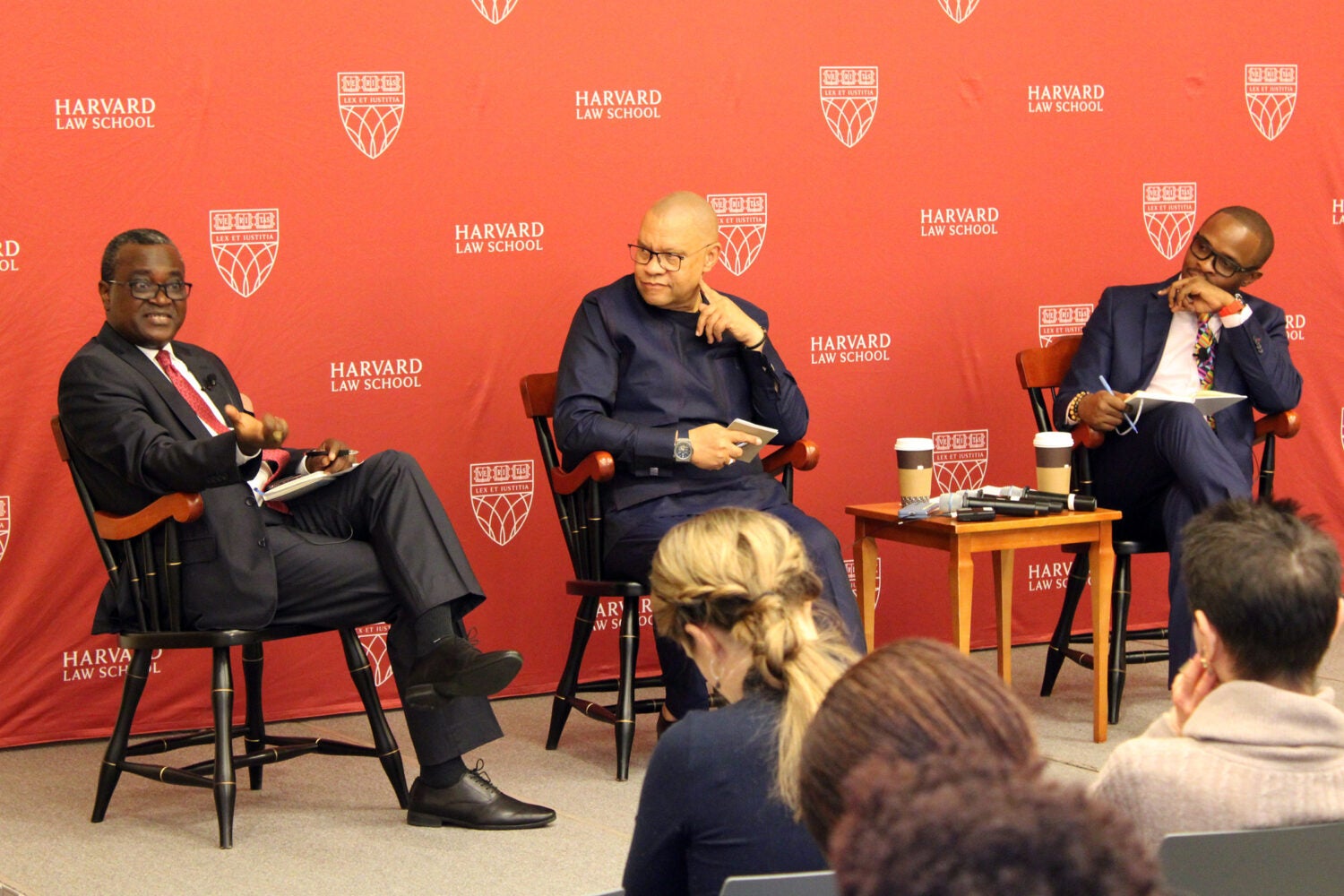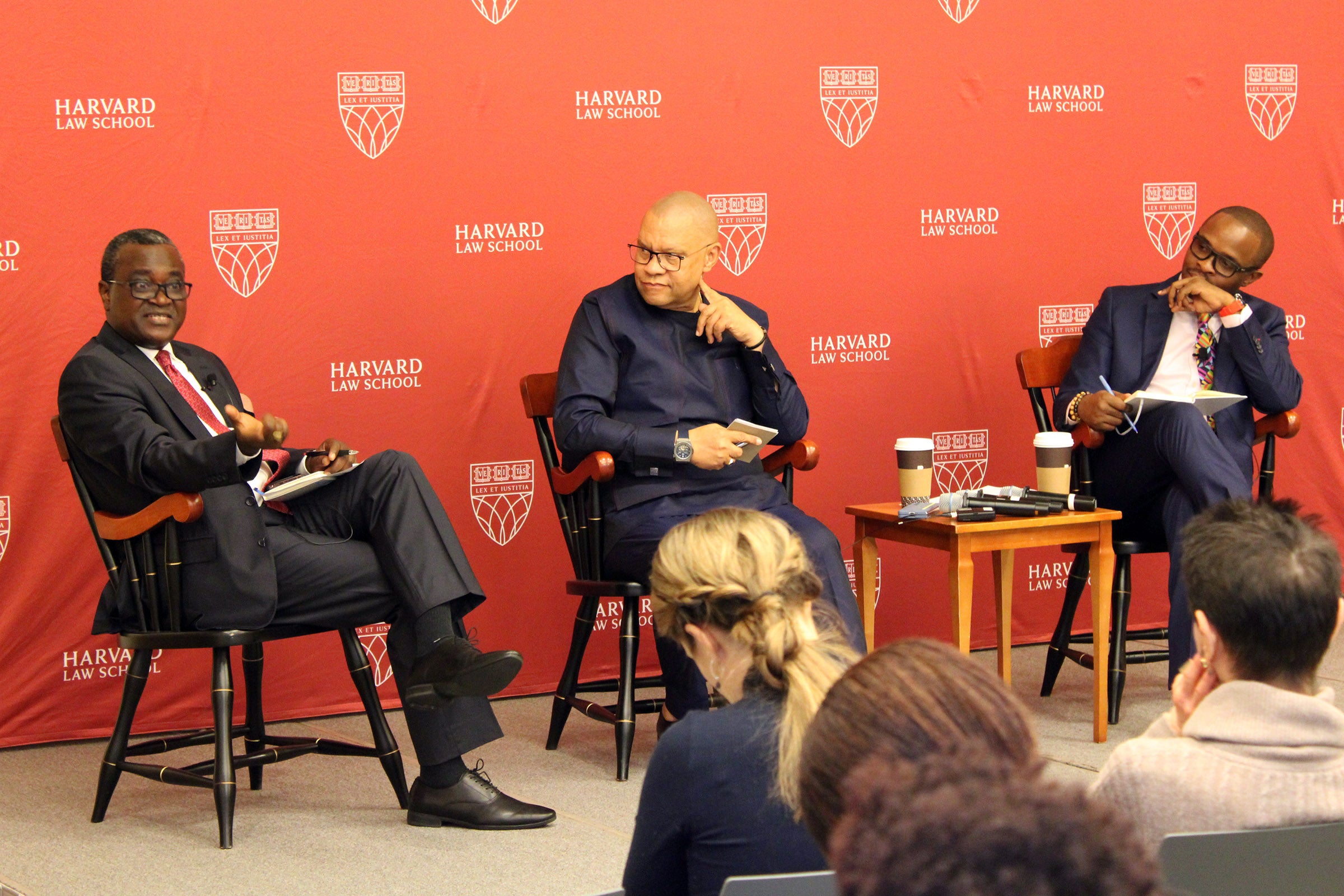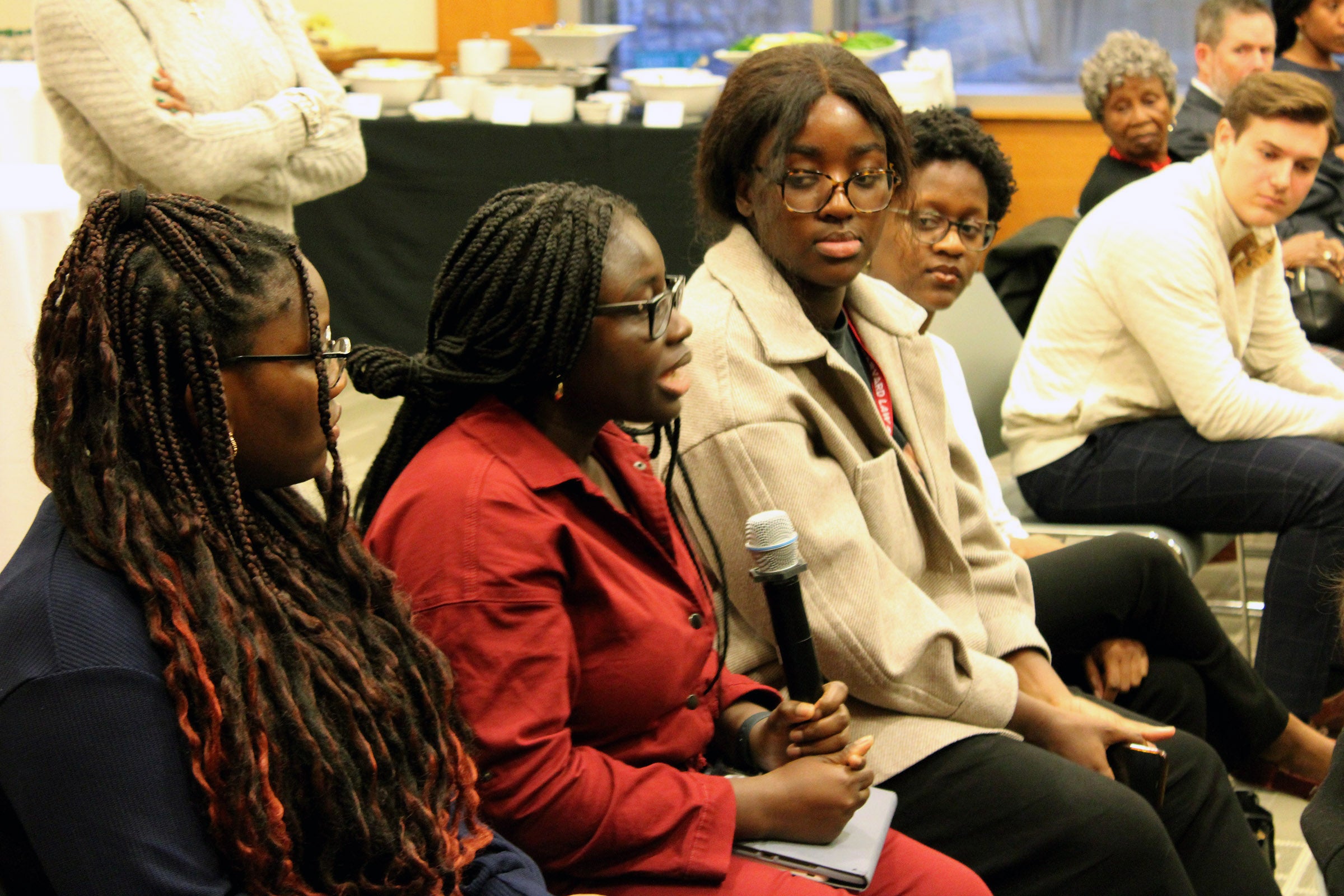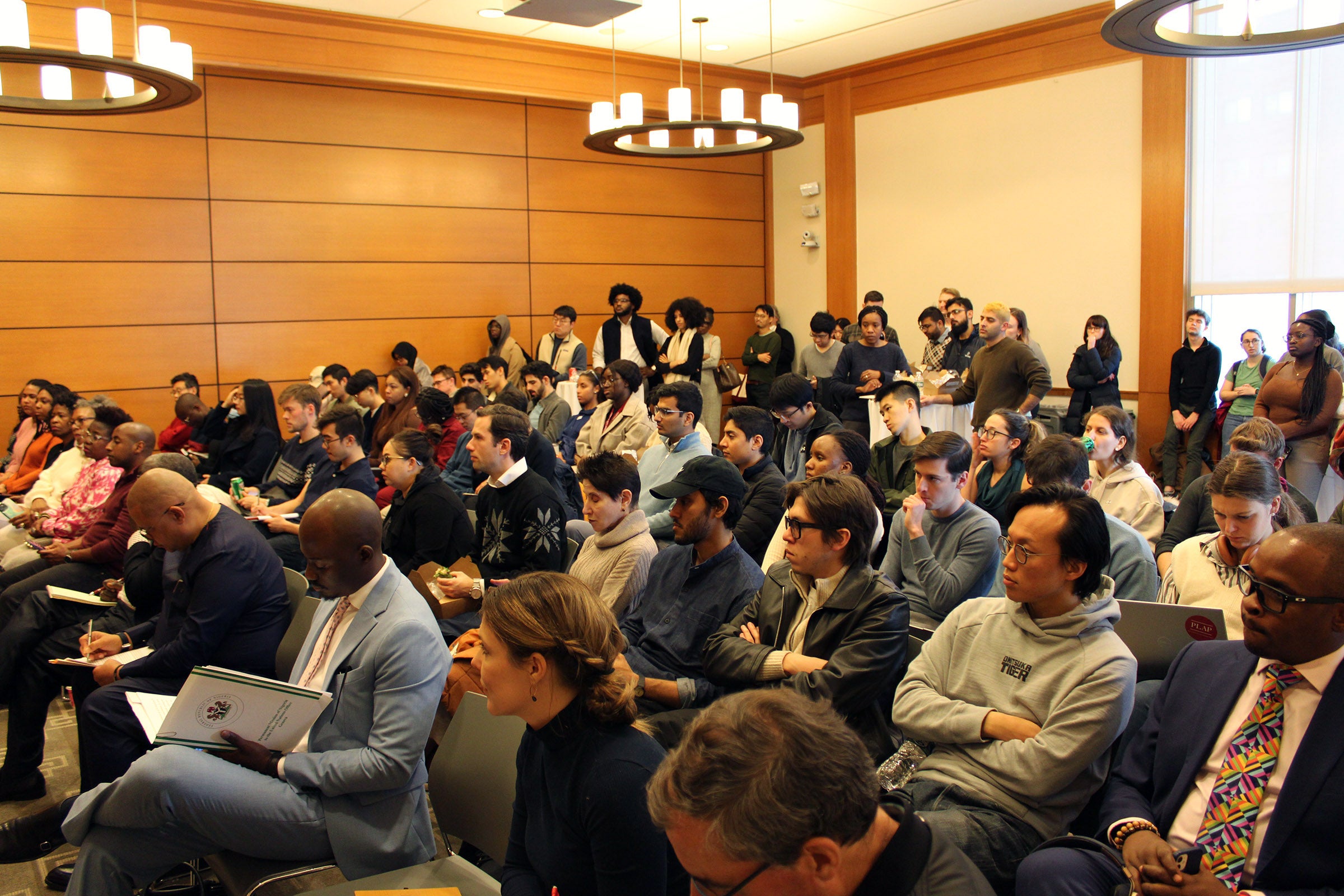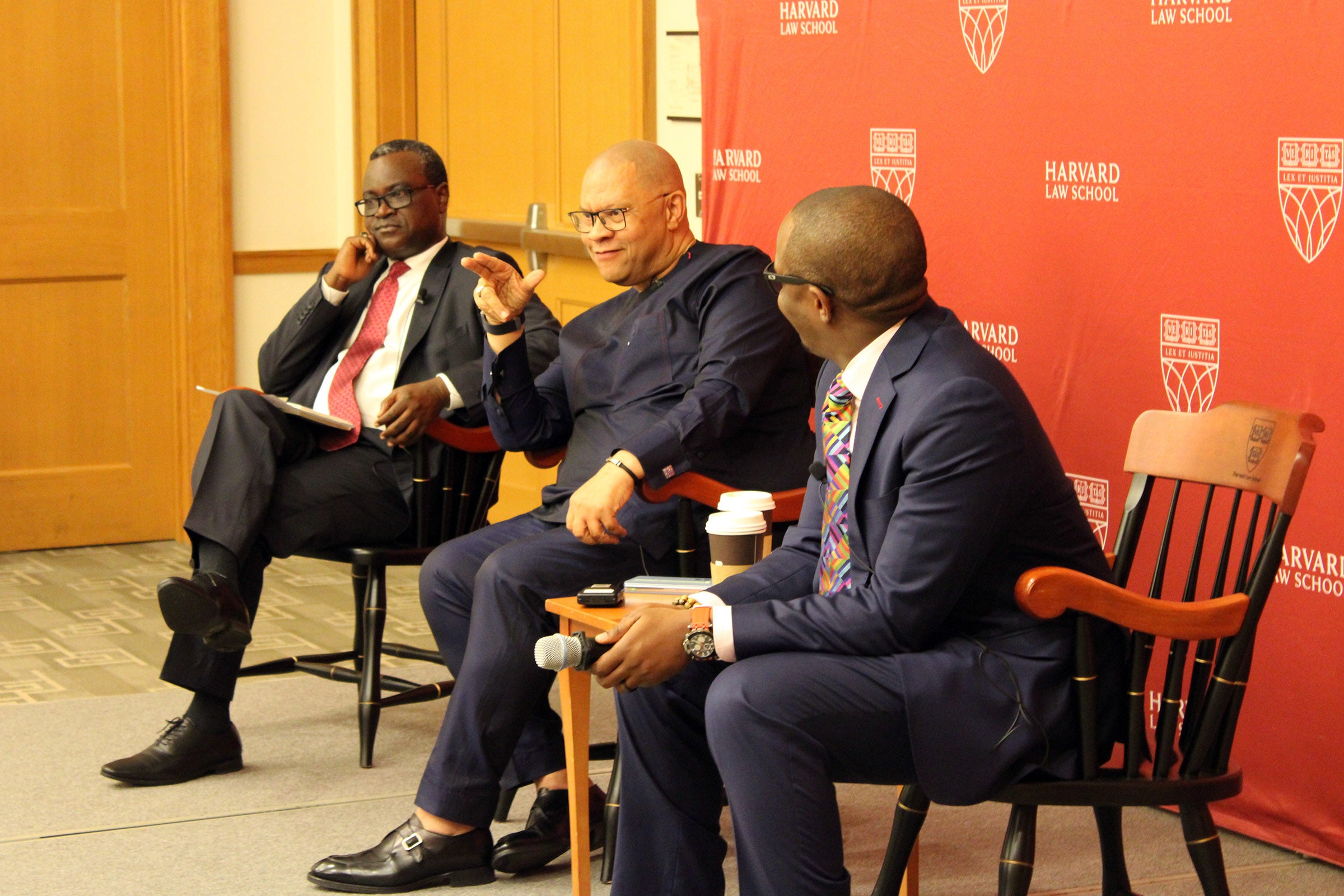The African continent has been hit especially hard by the effects of 3 Cs — COVID-19, crisis (regional and global conflicts), and climate change, with the latter having the most devastating impact. That was the conclusion of an afternoon of discussions on Nov. 28 at Harvard Law School.
While the continent has contributed the least to carbon emissions, they said, it suffers the most disproportionately in terms of its impact and access to global finance for adaptation or mitigation. The continent’s social, economic, labor markets, and the environment have borne the brunt.
These growth and development factors, and the rapid global adoption of artificial intelligence, was the backdrop for two lunchtime lectures and a fireside chat on, “The Impact of Artificial Intelligence on Labor and Productivity in Africa,” and “Representing Africa in International and Multilateral Organizations — Risks, Challenges, and Opportunities,” which brought to campus two prominent speakers who represent Africa at many strategic multilateral fora.
The high-level visit of Abiodun Richards Adejola, chairperson of the Governing Board of the United Nation’s International Labor Organization and Nigeria’s ambassador to Geneva, and Dr. Victor Oladokun, a senior adviser to the president of the African Development Bank Group, was hosted by the Harvard Center for African Studies.
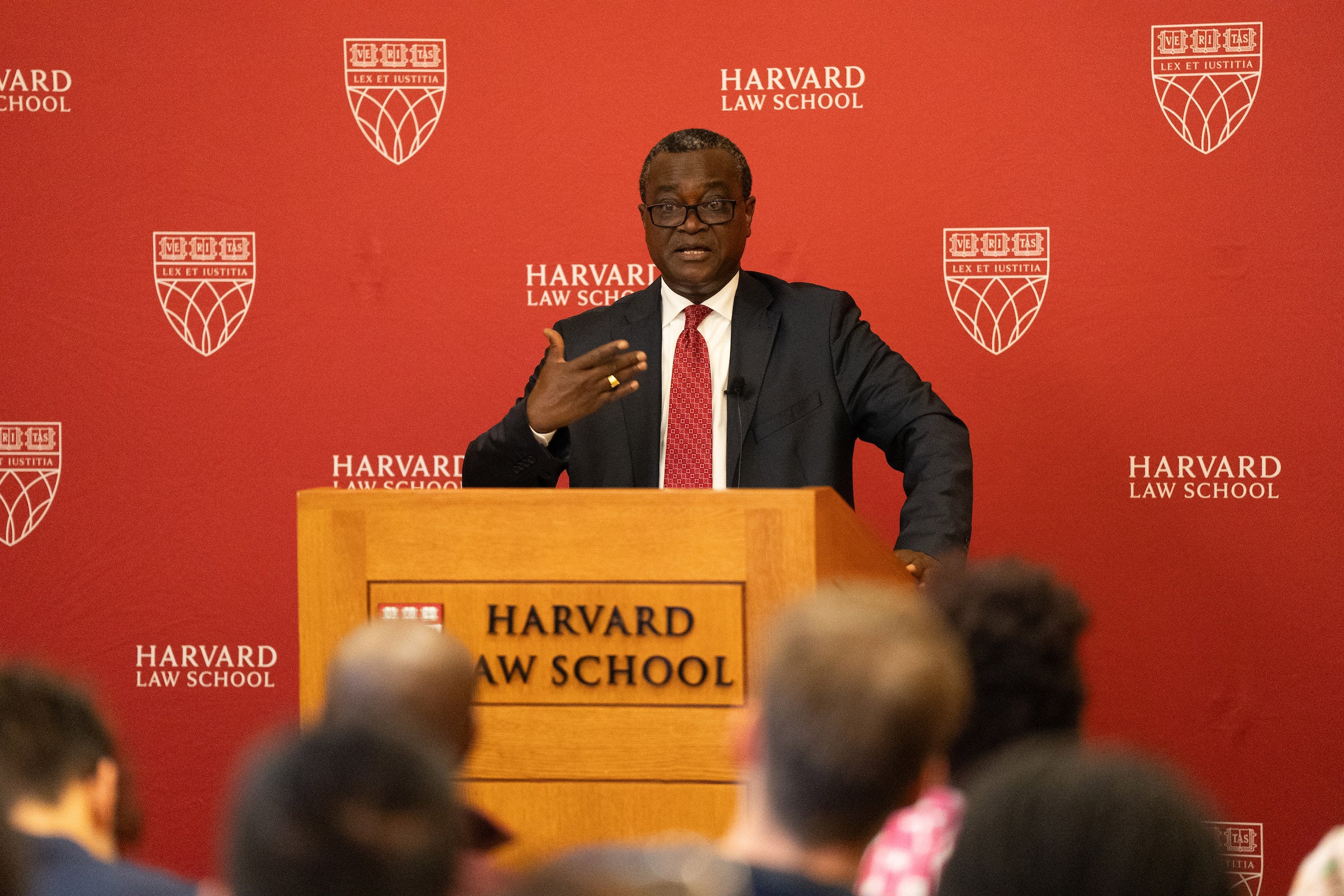
Speaking to an audience of over 150 faculty, students, and researchers, Richards and Oladokun acknowledged the difficulties of Africa — and of being African.
“There is no denying that something is wrong with the world we live in; we recognize that the architecture of many of the global systems and processes within which we operate are stacked against the continent,” said Oladokun. He cited Africa’s underrepresentation in virtually every international sphere, from politics to economics and even sports.
Referencing the number of national teams that are selected to participate in the FIFA World Cup as an example of this disparity, he asked “How does one explain how a continent with 1.2 billion people and 50+ FIFA affiliated countries has only 5 spots?” The same problem exists in other international organizations, he said, remarking, “You cannot imagine the challenges we’ve had to even allow Africa have a seat at the G20.”
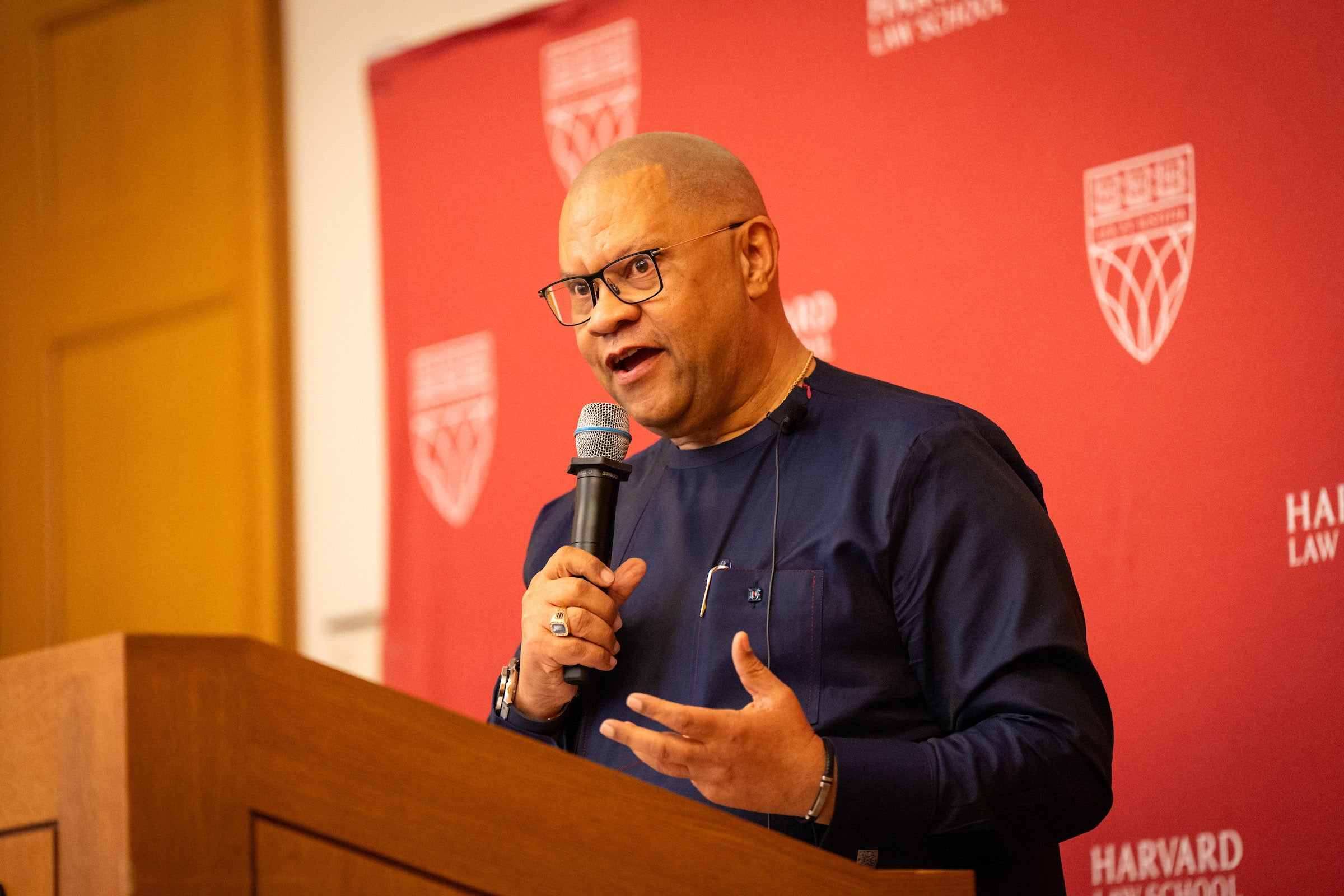
In his opening lecture, Richards said that previous technological revolutions have also left Africa burdened with social and economic costs that have impeded growth. But, he added, “the future is Africa; and we have no choice but to aggressively pursue effective policies and meaningful spaces for the continent’s advancement, particularly for its youth.”
African studies at Harvard, including opportunities to delve more deeply into contemporary issues affecting African countries, was of particular concern to undergraduate and graduate students in the audience. Professor Jacob Olupona, chair of the Department of African American and African Studies, highlighted that Harvard boasts the largest and most vibrant African languages program in the nation and emphasized travel opportunities available for students. For their part, students pointed to the need to prepare and equip a new generation for leadership on the continent, including in global organizations where decisions affecting Africa are routinely made without input from Africans.
Students from Harvard College, who were a large majority in attendance, inquired about the role of first-generation African students interested in contributing to Africa’s development. In a robust exchange with the speakers moderated by New York University Professor and Berkman Klein Center Faculty Affiliate James Wahutu, issues of gender equality, Africa-relevant policy formulation in the US, AI bias, and human rights emerged as key areas of concern. Questions from the audience ranged from topics such as pervasive gender bias and discrimination against African women in international organizations, misinformation and disinformation in African elections, and the link between pernicious poverty and cycles of regional conflict, to the exploitation of African workers in the development of AI systems by large technology companies.
“Africa’s challenges demand serious and sustained study,” said Ruth L. Okediji LL.M. ’91 S.J.D. ’96, Harvard Law’s Jeremiah Smith Jr. Professor of Law and faculty director of the Center for African Studies in an interview following the event. “There are significant social and environmental justice issues provoked by the rapid and unregulated deployment of AI and other technologies in Africa.”
“Harvard’s commitment to leverage the power of education to address pernicious manifestations of inequality is especially crucial for the study of modern African societies,” she said. “Lingering shadows of colonialism, widening gaps between rich and poor, and the endemic poverty endured by millions are amplified by the unregulated application of technologies that challenge what it means to be human. This is not good news for a continent that already struggles with dehumanizing encounters in the global order, in popular media, and in perceptions of its value to the world.”
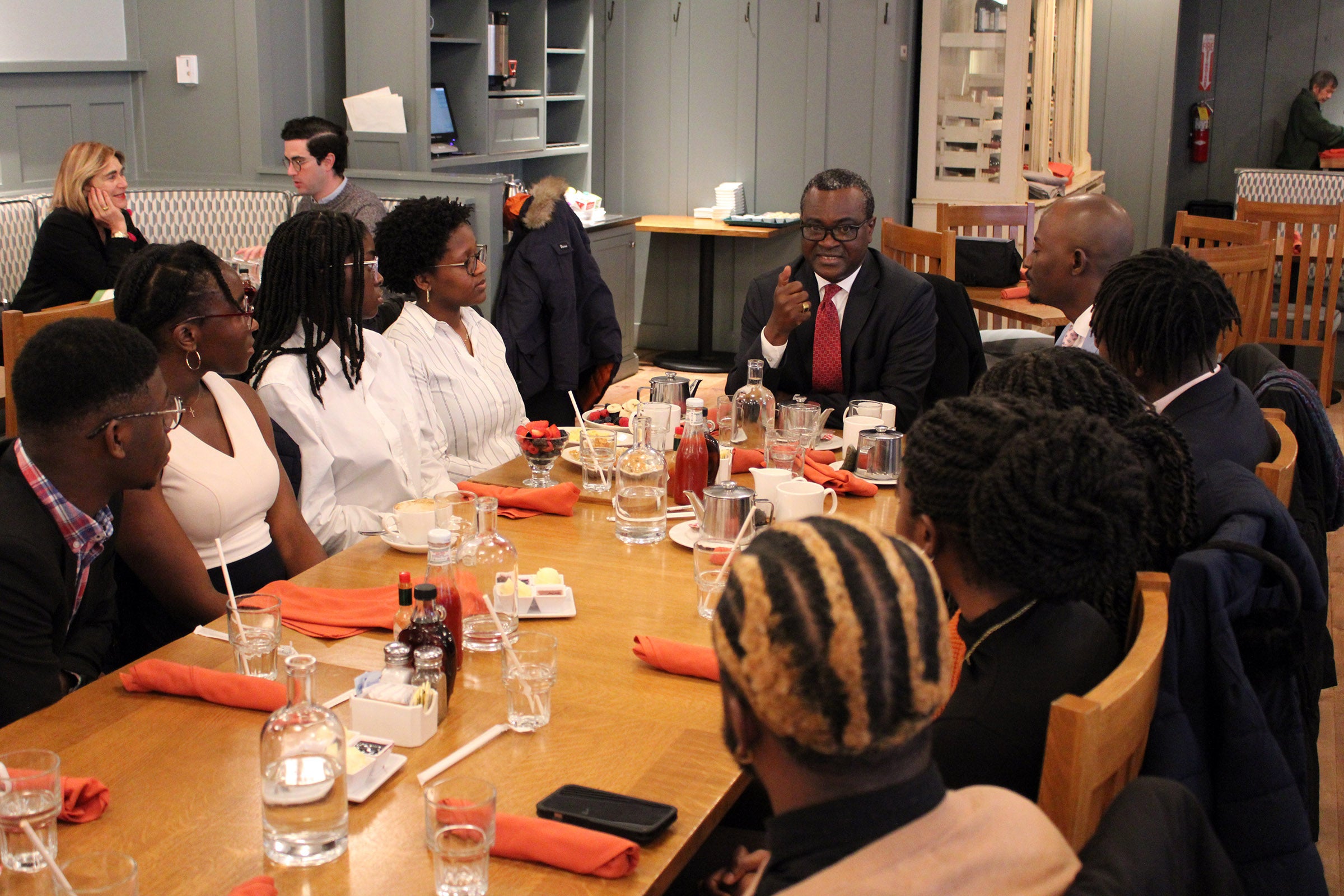
Also fueling misperceptions about Africa what speakers described as deliberate silence in the media about Africa’s successes. Africa’s ‘failure’ is as much about its many crises as it is avoidance or minimization in the press of its important successes and competencies. Oladokun cited the recent coverage of the Ouarzazate Concentrated Solar Power facility in Morocco, one of the largest in the world, for which the larger share of Phase 1 funding came from the African Development Bank.
“However, several global news outlets completely ignored the bank’s role and contribution, and instead gave attribution to another global development finance institution, with much less of a financial stake,” he said.
Several students in the audience asked what courses to study or careers to pursue to make a difference with their Harvard degrees.
“I would say to go with your passion,” Oladokun responded. Addressing the students, he said, “You’ve grown up in a culture where things are relatively easy. Life is not easy in Africa — it just isn’t. As great as Harvard is, understand that everything you’ve learned here will be obsolete in five years. Your degree is a good start, but you will need more.” The key, he said, is to keep networking, both here and in Africa. “The opportunities are boundless, because you’ve got something that the rest of the world wants.”
Wahutu added that students should “tap into the faculty and classes that are available on campus. Take advantage of opportunities to travel to Africa and be sure you ask the right and hard questions when it comes to what you are taught about Africa.”
“I don’t want you graduating and thinking you are up against insurmountable challenges,” Richards said. “Africa is open for business, preferably by those committed to her progress. Africa is waiting for you.”
Want to stay up to date with Harvard Law Today? Sign up for our weekly newsletter.
